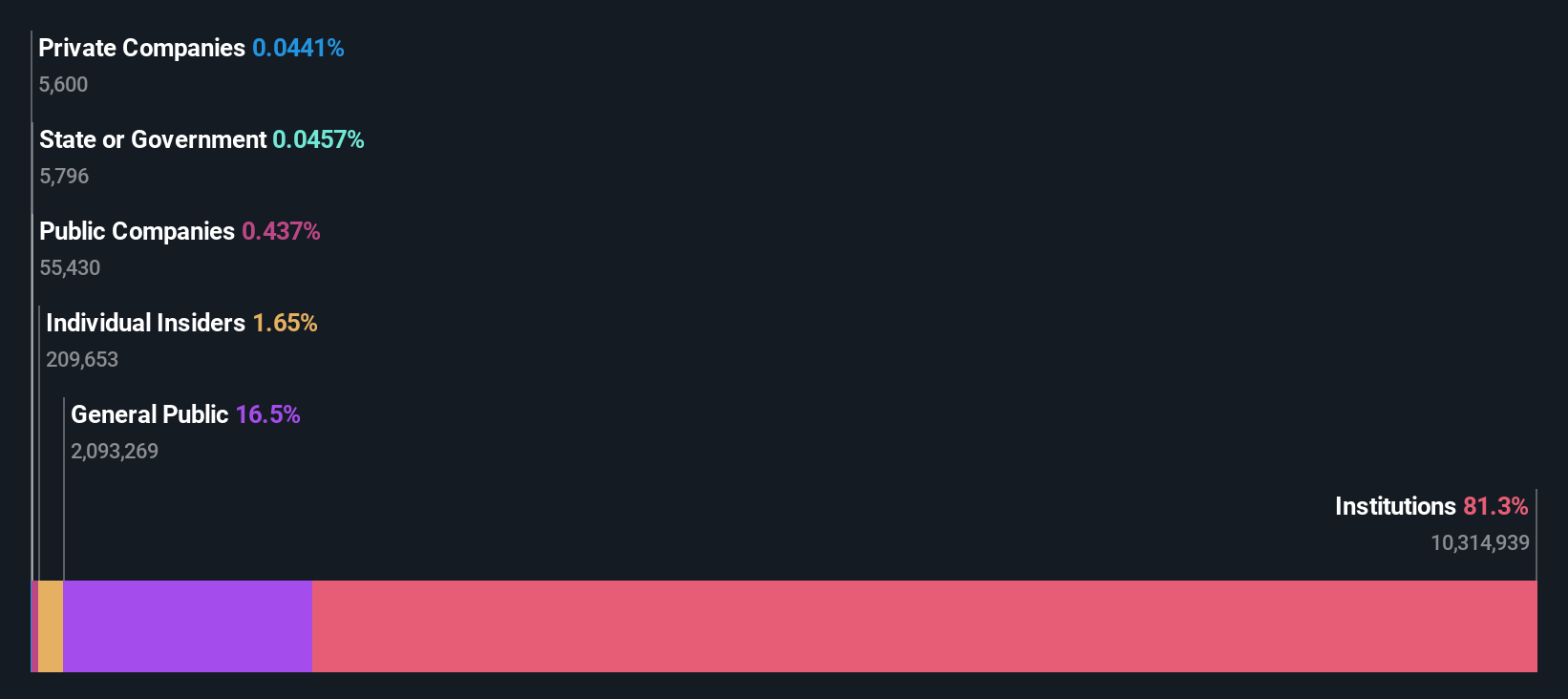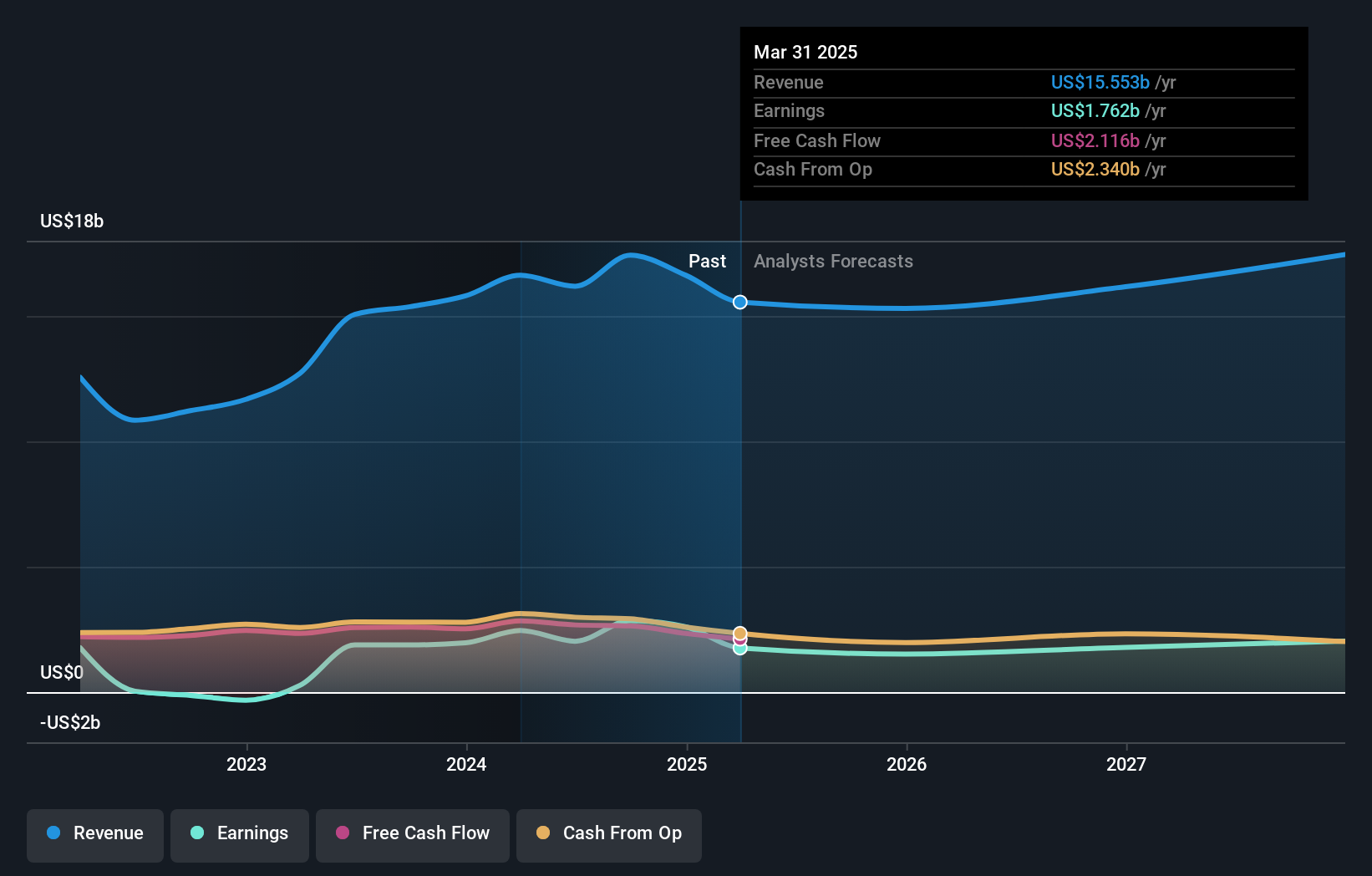Institutional investors are Markel Group Inc.'s (NYSE:MKL) biggest bettors and were rewarded after last week's US$1.0b market cap gain
Key Insights
- Given the large stake in the stock by institutions, Markel Group's stock price might be vulnerable to their trading decisions
- The top 24 shareholders own 50% of the company
- Recent sales by insiders
A look at the shareholders of Markel Group Inc. (NYSE:MKL) can tell us which group is most powerful. And the group that holds the biggest piece of the pie are institutions with 81% ownership. Put another way, the group faces the maximum upside potential (or downside risk).
And things are looking up for institutional investors after the company gained US$1.0b in market cap last week. One-year return to shareholders is currently 18% and last week’s gain was the icing on the cake.
Let's take a closer look to see what the different types of shareholders can tell us about Markel Group.
Check out our latest analysis for Markel Group

What Does The Institutional Ownership Tell Us About Markel Group?
Many institutions measure their performance against an index that approximates the local market. So they usually pay more attention to companies that are included in major indices.
As you can see, institutional investors have a fair amount of stake in Markel Group. This suggests some credibility amongst professional investors. But we can't rely on that fact alone since institutions make bad investments sometimes, just like everyone does. If multiple institutions change their view on a stock at the same time, you could see the share price drop fast. It's therefore worth looking at Markel Group's earnings history below. Of course, the future is what really matters.

Since institutional investors own more than half the issued stock, the board will likely have to pay attention to their preferences. Markel Group is not owned by hedge funds. The Vanguard Group, Inc. is currently the company's largest shareholder with 9.1% of shares outstanding. BlackRock, Inc. is the second largest shareholder owning 5.9% of common stock, and Principal Global Investors, LLC holds about 4.3% of the company stock.
After doing some more digging, we found that the top 24 have the combined ownership of 50% in the company, suggesting that no single shareholder has significant control over the company.
While studying institutional ownership for a company can add value to your research, it is also a good practice to research analyst recommendations to get a deeper understand of a stock's expected performance. Quite a few analysts cover the stock, so you could look into forecast growth quite easily.
Insider Ownership Of Markel Group
The definition of company insiders can be subjective and does vary between jurisdictions. Our data reflects individual insiders, capturing board members at the very least. The company management answer to the board and the latter should represent the interests of shareholders. Notably, sometimes top-level managers are on the board themselves.
Insider ownership is positive when it signals leadership are thinking like the true owners of the company. However, high insider ownership can also give immense power to a small group within the company. This can be negative in some circumstances.
Our most recent data indicates that insiders own some shares in Markel Group Inc.. The insiders have a meaningful stake worth US$400m. we sometimes take an interest in whether they have been buying or selling.
General Public Ownership
With a 17% ownership, the general public, mostly comprising of individual investors, have some degree of sway over Markel Group. While this group can't necessarily call the shots, it can certainly have a real influence on how the company is run.
Next Steps:
While it is well worth considering the different groups that own a company, there are other factors that are even more important. For example, we've discovered 1 warning sign for Markel Group that you should be aware of before investing here.
Ultimately the future is most important. You can access this free report on analyst forecasts for the company.
NB: Figures in this article are calculated using data from the last twelve months, which refer to the 12-month period ending on the last date of the month the financial statement is dated. This may not be consistent with full year annual report figures.
Have feedback on this article? Concerned about the content? Get in touch with us directly. Alternatively, email editorial-team (at) simplywallst.com.
This article by Simply Wall St is general in nature. We provide commentary based on historical data and analyst forecasts only using an unbiased methodology and our articles are not intended to be financial advice. It does not constitute a recommendation to buy or sell any stock, and does not take account of your objectives, or your financial situation. We aim to bring you long-term focused analysis driven by fundamental data. Note that our analysis may not factor in the latest price-sensitive company announcements or qualitative material. Simply Wall St has no position in any stocks mentioned.
 Wall Street Journal
Wall Street Journal